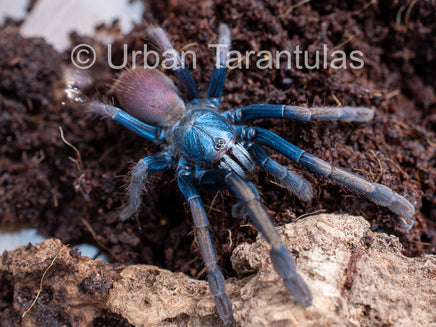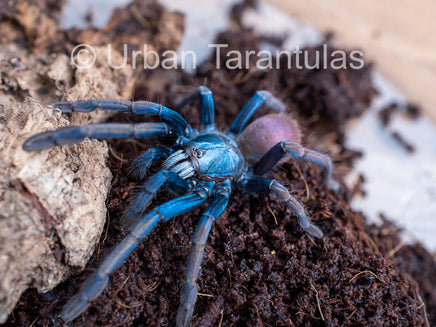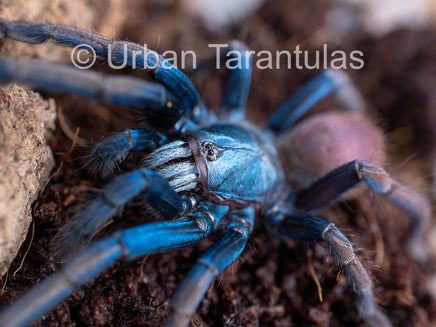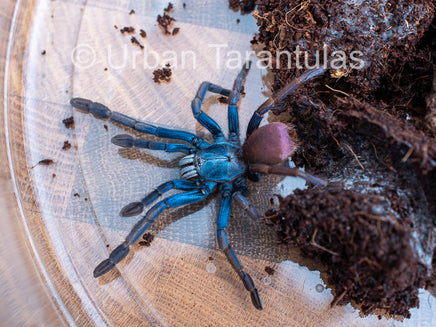Introduction:
Embark on an extraordinary journey with the Haploclastus devamatha, more intriguingly known as the LSD Earth Tiger Tarantula. This spectacular species is native to the Western Ghats of India, capturing the essence of the region's rich biodiversity. The LSD Earth Tiger is celebrated for its vivid and psychedelic coloration, reminiscent of a colorful trip, hence its common name. This tarantula is a fascinating addition for enthusiasts who are drawn to both the beauty and rarity of exotic tarantulas.
Care Details:
- Temperature: The ideal temperature for the LSD Earth Tiger ranges from 75 to 85°F (24 to 29°C), conducive to healthy growth and an active lifestyle.
- Humidity: Aim for a humidity level of 70-80%. While I generally don't use water dishes, they can be included if preferred.
- Housing: As a terrestrial/fossorial species, juveniles should be housed in a 1 oz to 4 oz deli container with fine ventilation. Adult enclosures should be about 2 to 3 times their leg span, with enough substrate depth for burrowing. Remember, you can request a free container at checkout for baby spiders.
Diet:
The LSD Earth Tiger's diet includes a variety of insects such as crickets and cockroaches. Smaller prey is recommended for juveniles, while adults can handle larger food items. If necessary, incapacitate larger prey before offering. Ensure to remove any uneaten food to prevent mold growth. Small pinky mice can be offered occasionally, but sparingly, to maintain a healthy diet.
In-depth Facts:
- Latin Name: Haploclastus devamatha
- Common Name: LSD Earth Tiger Tarantula, Indian Rainbow Tarantula.
- Locale: Native to the Western Ghats of India.
- Category: Terrestrial/Fossorial, with strong burrowing tendencies.
- Size: Females can reach about 5 inches, males mature around 3 inches.
- Urticating Hairs: Not present in this species.
- Growth Rate: Moderate, allowing for a steady observation of development.
- Life Span: Females have a lifespan of about 8 years, while males mature in 3-4 years.
- Recommended Levels: Lovers of super rare and super colorful species.
Stay Connected:
- Instagram: Follow my Instagram for the latest on tarantula care.
- YouTube: Check out my YouTube channel for detailed care guides and educational content.
- Facebook: Visit my Facebook for reviews and community interactions.
- TikTok: Discover more about tarantulas on my TikTok.
Safety Disclaimer
Experiencing a tarantula bite is an extremely rare occurrence, and it's important to note that there have been no recorded fatalities due to a tarantula bite. The venom potency varies across species, with Old World tarantulas generally having stronger venom than their New World counterparts.
It's crucial to approach tarantulas with respect and understanding. If you happen to get bitten, which is unlikely, the key is to stay calm. In most cases, the discomfort is superficial and subsides within a few minutes to a few hours. However, bites from species with more potent venom may result in symptoms lasting up to a week. Remember, larger tarantulas tend to have more venom than smaller ones.
Please be aware that I cannot assume responsibility for bites. Tarantula handling should be done at your own risk. In my 11 years of experience with these creatures, I have only been bitten once, by a species with highly potent venom. While the experience was painful, the symptoms had completely disappeared after a week.
Handle tarantulas responsibly, and always prioritize your safety and the well-being of the tarantula.







